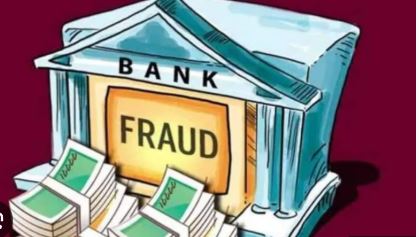Goa is abuzz with excitement as vintage bike and car owners, users, collectors and fans are decking […]

BANKING – SCAMS AND SCAMSTERS!By Adv Arvind Pinto
June 28- July 04, 2025, SCAMS June 27, 2025IN India, over the last decade, digital is the new norm for most banks and their operation with customers. Gone are the days, when you would need to visit a Branch, or fill laborious forms. Much of those procedures such as bank passbooks, manual entries, physical filling in of forms, are slowly giving way to digitized filling. Over time even cashiers and cash would become redundant, with financial transactions going digital transactions.
India leads the world in united payment interface (UPI) transactions, where one can receive or send money to their bank accounts, through an interface where their phone number is linked to their bank account. Many banks have found UPI transactions simple, since they do not need to carry currency notes with them. Further with a digital transfer, even the need of giving or receiving change for a transaction has been eliminated. Banking has become a breeze for the busy professional and old-fashioned senior citizens alike.
DIGITAL SCAMS
HOWEVER, this digital transformation has also spawned a new set of scams and scamsters, in search of ways to dupe an unwitting customer of their savings in this new digital age. As chairman of my bank, I would like to share with you some of the many tricks that these scamsters play to defraud you:
• Never disclose you Personal Identification Number (PIN)
• Most elderly bank customers are given debit cards, allowing them to withdraw cash from banks even after closing hours, should they have the need of doing so. Many of these senior citizens often employ the aid of their domestic help or close relatives to visit a nearby Automated Teller Machine (ATM) to withdraw cash. These elderly persons necessarily give both their debit cards as well as the PIN, to operate the ATM’s. The sharing of a PIN, allows a third party to withdraw from the account and on several occasions, it is noted that these fraudulent transactions go unnoticed, until the customer realises that they have been duped. Entrusting one’s debit card and PIN to another, leaves people vulnerable to theft.
• Despite the warning by banks not to share personal details of your bank account, debit card or PIN, many customers unwittingly fall victim to such emails. A common gimmick, is a mail stating that
• One of the common scams is called “phishing.” Certain scammers send fake emails and text messages. These messages start with an email stating that your bank account is locked. It guides you to click on a link and when you do this your bank information is transferred to people who can then open and operate your account.
• At times scammers steal and clone debit or credit card information. These enable them to make unauthorised withdrawals from ATM’s, gas stations or use your cards for high value purchases. Banks often remind customers to block their cards when not in use and unblock cards only when they wish to use the same.
• One of the many tricks that scammers use, is to call a person especially at late evening, to inform them that their electricity bill is overdue, and this may result in cutting off their electricity supply. They are then talked into sharing their bank account details on phone, or asked to click onto a link on their phone. On clicking the link, the scammer has access to the bank account of the customer and while the conversation is being carried out, the bank account is operated and cleaned out before the person realizes what the scammer has done!
Should this happen, bank customers have been advised by banks to contact the Cyber Crime cell, who then start investigation into the trail of the money that has been taken from the account.
• Similar to the above noted scams, at times scammers put money into your account. Later you receive a mail, that the money has mistakenly been credited to you and a request is made to transfer the amount back, by clicking on a certain clink. Once the link is activated, your bank details are open to scammers to withdraw at will. Often, they would withdraw in stages in order not to alarm the customer.
CHARITY SCAMS
THEN there are investment and charities scams. You receive a mail asking you to invest in schemes that give you an unusually high rate of return. The scammers attempt to obtain your bank details or card numbers. Then they attempt to make you share your PIN details, in order to enable them to operate your account at will.
There are scams galore. There are some that offer you employment, or lure you with rewards, sometimes romance, or travel. All these ultimately have the intention of obtaining details of your bank account, your card details and your PIN, to be able to siphon off your hard earned money.
Thus, while digitalization of banking transactions has helped customers to transaction seamlessly, it has opened ways and means for scamsters to pick money from your bank accounts. Beware of such scams!
(Adv Arvind Pinto is the chairman of the Citizen Credit Bank Ltd)














